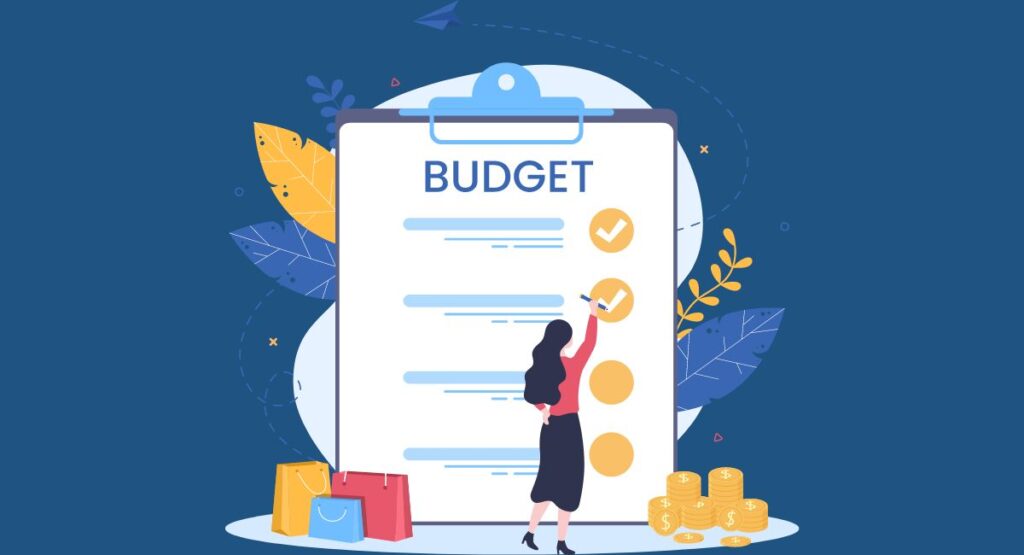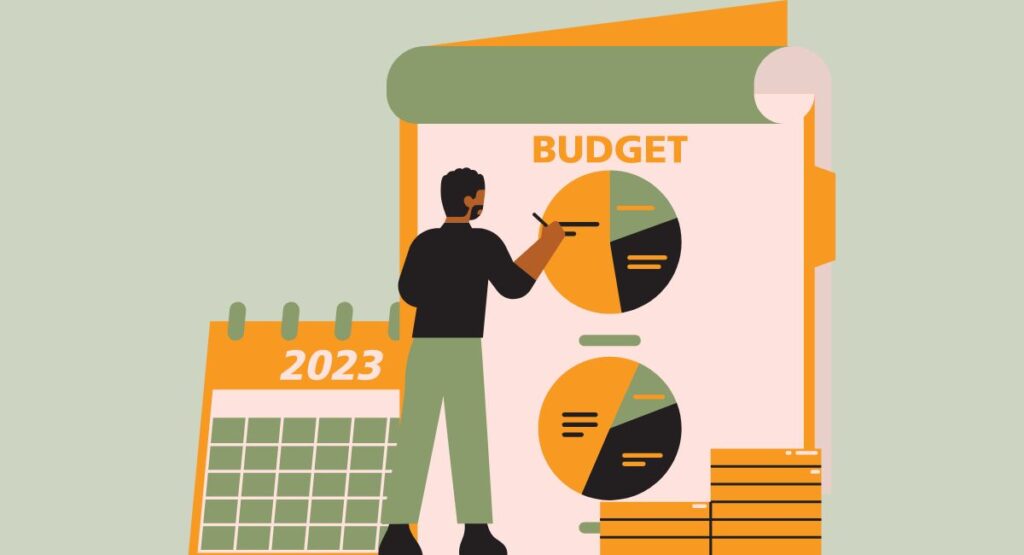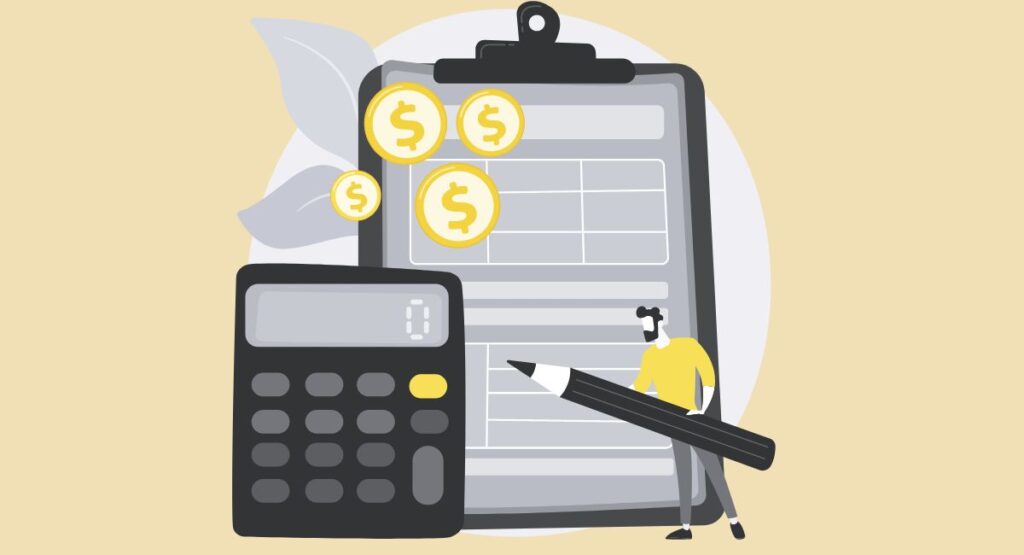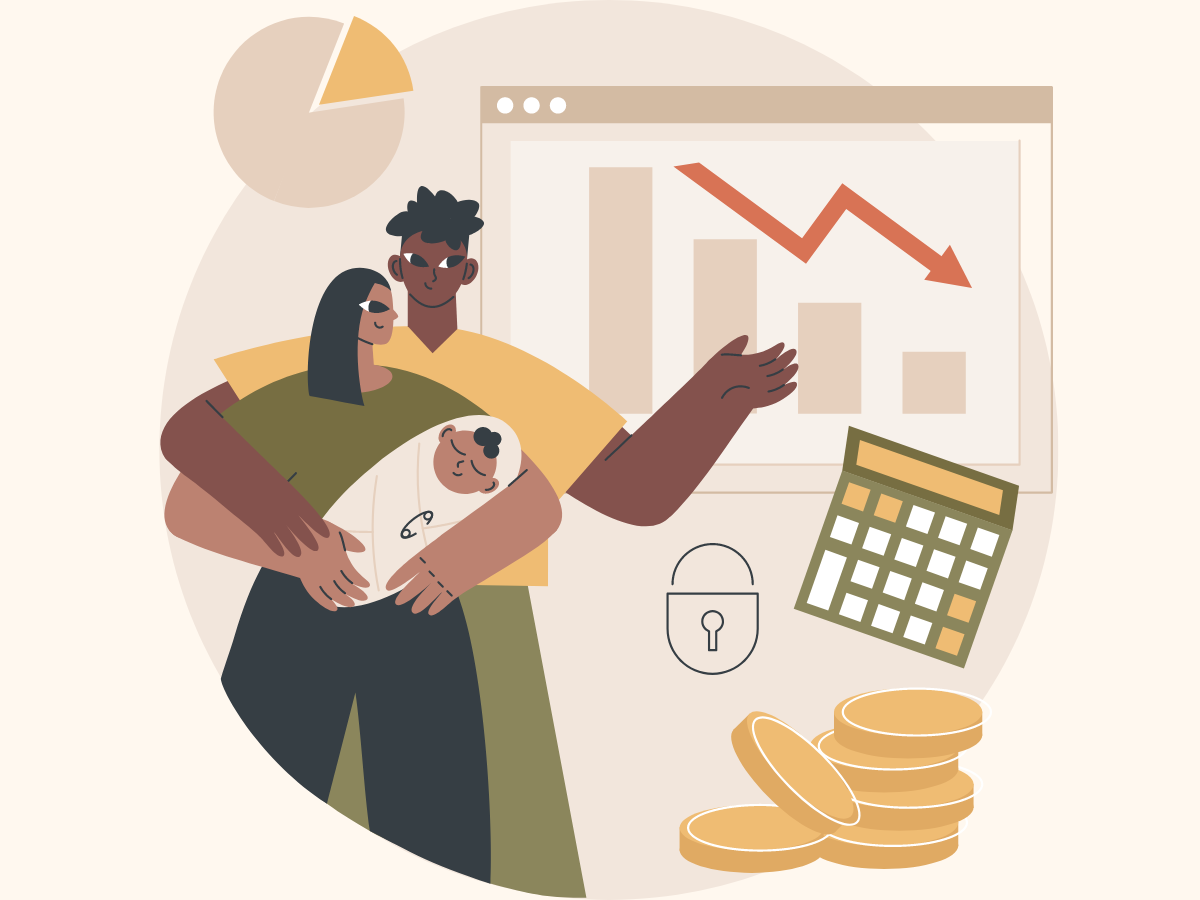Creating a Budget: How to Manage Your Money and Achieve Financial Freedom
This comprehensive guide will take you through the budgeting steps and provide you with the knowledge and resources needed to manage your money effectively. We understand that budgeting can be daunting, especially if this is your first time doing it. From creating a budget to how to manage your money like an expert.
But don’t worry; we’re here to make it as easy as possible. From setting financial goals to tracking your income and expenses, we will show you the best practices and strategies to create a budget that fits your lifestyle and helps you achieve your financial dreams.
Whether you’re looking to save for a down payment on a house, pay off credit card debt, or simply have a better understanding of where your money is going, this guide has got you covered. We will also provide tips and tricks to make sticking to your budget a breeze and show you how budgeting can achieve financial freedom in the long run.
So, this guide is for you, whether you’re just starting out on your financial journey or looking to improve your current budgeting habits. We’re here to help you take control of your finances and achieve the financial freedom you deserve. Let’s get started!

Introduction to budgeting and why it’s important
Budgeting is creating a plan for how you will spend your money. It’s a simple yet powerful tool that can help you take control of your finances, achieve your financial goals and ultimately lead you toward financial freedom.
Budgeting is vital for several reasons, but the most important is that it helps you understand where your money is going and where you can make changes to improve your financial situation.
When you budget, you create a roadmap for your money, with clear destination points for where you want to go financially. It helps you identify your income and expenses, so you can see where you can cut back on unnecessary spending and redirect your funds to achieve your financial goals. Without a budget, it’s easy to overspend, accumulate debt and lose track of where your money is going.
Budgeting also helps you to plan for the future. By setting financial goals, you can work towards a brighter financial future. For example, if you want to save for a down payment on a house, budgeting can help you understand how much you need to save and how long it will take you to reach your goal. With a budget in place, you can progress toward your financial dreams and achieve financial freedom.
In short, budgeting is essential for anyone who wants to take control of their finances, achieve their financial goals, and ultimately lead a financially secure life. It’s a simple yet powerful tool that can help you make better money decisions and achieve financial freedom.
The Different Types Of Budgeting
Regarding creating a budget, there are several different methods to choose from. Each has advantages and disadvantages; the one right for you will depend on your financial situation, goals, and preferences. Some of the most common types of budgeting include:
- Envelope Budgeting: This method involves physically allocating cash to different envelopes labeled for specific expenses, such as rent, groceries, and entertainment. Once the money in an envelope is gone, you can only spend more on that category during the next budget period.
- 50/30/20 Budgeting: This method divides your income into three categories: 50% for essentials, 30% for personal spending, and 20% for savings and debt repayment.
- Zero-Based Budgeting: This method involves creating a budget where all income is allocated to specific expenses, and any remaining income is saved or invested. The goal is to reach “zero” at the end of the budget period, meaning all income has been allocated.
- Reverse Budgeting: This method involves starting with your savings and debt repayment goals first and then allocating the remaining income to expenses.
- Flexible Budgeting: This method needs to be more structured and allows for more flexibility in spending. It involves creating a budget with a general idea of expenses but allowing for some wiggle room for unexpected expenses or changes in income.
Ultimately, the type of budgeting that works best for you will depend on your personal preferences and financial situation. You may find that one method works better for you than others, or you may find that a combination of methods is the best way to achieve your financial goals. It’s essential to experiment with different types of budgeting and find the one that works best for you.

Steps for creating a budget, including setting financial goals and tracking income and expenses
Creating a budget may seem like a daunting task, but it’s actually a reasonably straightforward process. By breaking it down into manageable steps, you can easily create a budget that works for you and helps you achieve your financial goals. Here are the steps to creating a budget:
- Determine your income: The first step in creating a budget is determining how much money you bring each month. This includes your salary, any freelance or side gig income, and any other sources of income.
- List your expenses: The next step is to list all of your expenses. This includes fixed expenses like rent or mortgage payments and variable expenses like groceries and entertainment. Be sure to include all of your expenses, no matter how small.
- Set financial goals: After clearly understanding your income and expenses, the next step is to set financial goals. This could be paying off debt, saving for a down payment on a house, or saving for retirement. Be specific and realistic when setting your goals.
- Track your spending: Once you clearly understand your income and expenses and have set financial goals, it’s crucial to track your spending. This will help you to see where your money is going and identify areas where you can cut back on spending.
- Make adjustments: After tracking your spending, you may find that some of your expenses are higher than you anticipated. This is when you can make adjustments to your budget. You may need to cut back on certain expenses or find ways to increase your income.
- Review your budget regularly: Budgeting is an ongoing process, so it’s essential to review it regularly. This will help you to see if you are on track to achieve your financial goals and make any necessary adjustments.
By following these steps, you can create a budget that works for you and helps you achieve your financial goals. Remember, budgeting is an ongoing process, so it’s essential to be patient and persistent. With time and effort, you can take control of your finances and achieve the financial freedom you deserve.

Tips for sticking to your budget and making adjustments as needed
Creating a budget is one thing, but sticking to it can be a different challenge. Here are a few tips to help you stick to your budget and make adjustments as needed:
- Be realistic: When creating your budget, be realistic about your income and expenses. Make sure to avoid setting yourself up for failure by creating a budget that is impossible to stick to.
- Prioritize your expenses: Identify your most important expenses and ensure they are included in your budget. This will help you prioritize your spending and cover your essential expenses.
- Use budgeting apps: There are a lot of budgeting apps available that can make tracking your spending and sticking to your budget a lot easier. They can provide real-time updates on your spending and help you stay on track.
- Allow for flexibility: Life happens, and unexpected expenses can come up. Allow for some flexibility in your budget to account for these unexpected expenses.
- Review and adjust regularly: Review your budget periodically and make adjustments as needed. This will help you stay on track and achieve your financial goals.
- Be disciplined: Stick to your budget and resist the urge to overspend. Discipline is critical to sticking to your budget.
- Be creative: Look for creative ways to reduce expenses and increase income. For example, try to find ways to save on groceries or to earn extra money from side hustles.
Following these tips, you can stick to your budget and adjust as needed. Remember, budgeting is an ongoing process, so it’s essential to be patient and persistent. With time and effort, you can take control of your finances and achieve the financial freedom you deserve.

How to use budgeting to achieve financial freedom, including paying off debt and building savings
Budgeting is a powerful tool that can help you achieve financial freedom, but it’s essential to understand how to use it effectively. Here are a few ways to use budgeting to achieve financial freedom:
- Pay off debt: One of the most effective ways to use budgeting to achieve financial freedom is to pay off debt. By creating a budget that includes a plan to pay off debt, you can work towards becoming debt-free, which will increase your financial freedom.
- Build savings: Building savings is another crucial aspect of achieving financial freedom. By budgeting for savings and putting a portion of your income into savings each month, you can build a safety net to fall back on in case of emergencies and work towards your financial goals.
- Invest: Investing your money is another way to use budgeting to achieve financial freedom. By budgeting for investments and putting a portion of your income into investments each month, you can grow your wealth and increase your financial independence over time.
- Retirement plan: Planning for retirement is crucial to achieving financial freedom. By budgeting for retirement and saving a portion of your monthly income, you can ensure that you have enough money to live comfortably in your golden years.
- Live below your means: One of the most important things to remember when trying to achieve financial freedom is to live below your means. By budgeting and living below your means, you can save and invest more money, which will help you achieve financial freedom faster.
By using budgeting to pay off debt, build savings, invest, plan for retirement and live below your means, you can take control of your finances and work towards financial freedom. Remember, budgeting is an ongoing process, so it’s essential to be patient and persistent. With time and effort, you can achieve the financial freedom you desire.

Conclusion
In conclusion, creating a budget is essential to achieving financial freedom. It may seem overwhelming initially, but with a bit of time and effort, you can create a budget that works for you and helps you achieve your financial goals.
By setting goals, tracking income and expenses, and making adjustments as needed, you can take control of your finances and make progress toward financial freedom.
Budgeting is an ongoing process, so it’s important to be patient and persistent. It’s also important to remember that budgeting is not a one-size-fits-all solution, and different people may have different budgets and strategies that work best for them. The key is to find a budgeting method that works for you and stick to it.
In addition, it’s essential to review your budget regularly and make adjustments as needed. This will help you stay on track and achieve your financial goals. And remember to celebrate your successes along the way!
Budgeting is a powerful tool that can help you achieve financial freedom. With patience, perseverance, and the right mindset, you can take control of your finances, achieve your financial goals and ultimately lead a financially secure life.







